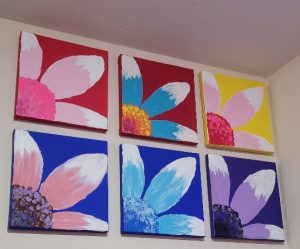Let’s pretend for a minute that I wasn’t a skeptical person – that I didn’t ask a million questions. Maybe I was lacking common sense and needed a far-fetched explanation to squash my fear of the unknown. Maybe I was raised in a church and didn’t know any different.
I am constantly bombarded with Christianity and sometimes it wears me down. What if I just gave in? If you can’t beat them, join them, right?
As much as I’m cringing writing this, you have to admit, there are a few positive aspects to Christianity. First, many Christians feel at home at their church. That’s a sense of community I don’t have. Religion provides rules and a certain plan for life so many Christians feel they have a purpose. Not to mention, the thought of going to heaven when you die is probably pretty comforting. Maybe not having to think for yourself is a relief to some. If you didn’t know any different, wouldn’t Christianity feel safe? Also, Christians are the majority here where as an atheist I often feel ostracized and judged — silenced even.
What if I had these things? If I was a Christian with blind faith, would I be happier? Would my life be simpler?
I imagine bonding with my coworkers, having a sense of community I’ve longed for, and maybe getting a little more sleep — after all, I’m going to heaven when I die. I imagine feeling safer and more confident.
What I am describing would require blind faith, and it’s in my nature to question. To be honest, I find it hard to believe that there are people who don’t question anything. I think everyone questions but few are willing to admit it. Personally, I couldn’t call myself a Christian and live with those doubts.
So would I be happier? We all know the horror stories that accompany Christianity and certain churches, but if you just consider the aspects I listed above, I think I actually would be happier. Comfort, safety, purpose – I mean, who wouldn’t want those things?
But it’s just not me. I was even skeptical as a child and I don’t like being lied to. I will live a more difficult life if it means evidence and common sense are valued. That’s what’s important to me. I feel strong and grounded as an atheist which has positively impacted my recovery – that’s also very important to me.
What do you guys think? Would you be happier if you were a Christian with blind faith? What would that look like in your life? I live in a red state in the Midwest so that definitely affects how I look at religion. What would these aspects look like where you live? I’m sure there have been many studies done on religion and happiness, but I think it’s really interesting to consider scenarios on a very personal level.





